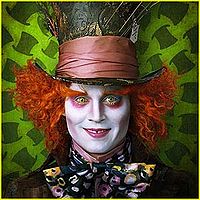The open source tea party


In its starkest terms there is a divide between idealists and realists, between those who see FOSS as a creed to be adhered to and those who see it mainly as a business model, a route to profit.
Unlike a real political movement, of course, open source has a financial imperative. It takes money to keep the doors open. Thus the realist school, corporate open source, has always had the upper hand.
What idealists have mainly tried to do is balance the interests of big open source players, and call them to follow the better angels of their nature.
The entrance of government into the discussion, in the form of the European Commission, is both an opportunity and a challenge to the idealists. Government power can be placed on the side of ideals. Government can also be captured by private interests. Idealists must be wary.
Florian Mueller of FOSSPatents is an idealist. Groklaw may feel I erred in comparing him to Richard Stallman, but both are idealists, and ideals are important in any open source debate.
Idealism is controversial by its nature. Both of America's great political parties have idealist and pragmatist wings. The Netroots and those they deride as "conservadems" on the Democratic side, the Tea Party and "business conservatives" on the Republican.
When idealists are attacked from inside their party, it's useful to note where the criticism is coming from, and why. Groklaw, for instance, has to my knowledge never set itself in opposition to IBM in any great open source debate. They are a player in all debates, but their word is never definitive.
IBM has an immense library of software patents, which give it a place at the table of every open source debate. Through the Open Invention Network, it has created a commons with other open source players. But it is, as Mueller notes, a closed system, a poker table where your ante is your patent portfolio.
This limits who can play, and Mueller's latest charge is that, through OpenForum Europe, IBM is trying to globalize this limit.
He charges that OFE supports software patents and may have even captured Neelie Kroes, who in her OFE address expressed a preference for royalty-free standards, but did not make them a requirement.
That's where it still stands. For reasons unknown to me, the U.S. Supreme Court has not yet ruled on Bilski vs. Kappos. We have yet to learn, definitively, where government will stand on questions near and dear to the heart of idealists like Mueller.
My guess is the result, when it comes, will be an ambiguous one, so the tension between idealists and corporatists, between the open source tea party and our most powerful companies, will continue.